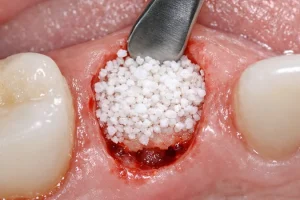The Link Between Oral Bacteria and Alzheimer’s Disease

The Link Between Oral Bacteria and Alzheimer’s Disease
What Toronto Dental Patients Need to Know About Gum Health and Brain Function
Did you know that poor oral health might increase your risk of Alzheimer’s disease? At Fort York Dentist, we’ve always emphasized the importance of good oral hygiene — not just for your teeth and gums, but for your overall health. Now, growing scientific evidence shows a strong connection between oral bacteria and Alzheimer’s, one of the most common forms of dementia.
If you’re searching for a dentist in downtown Toronto who prioritizes your long-term health, this article is for you.
What Is Alzheimer’s Disease?
Alzheimer’s disease is a progressive brain disorder that affects memory, behavior, and thinking. While aging and genetics are known risk factors, researchers now believe that chronic infections and inflammation, including those starting in the mouth, may also contribute.
The Role of Oral Bacteria in Brain Health
Your mouth contains hundreds of bacteria — some helpful, others harmful. One bacterium of concern is Porphyromonas gingivalis, a major cause of chronic periodontitis (advanced gum disease). If left untreated, this bacterium can enter the bloodstream through inflamed gums and reach distant organs, including the brain.
Research Highlights:
- P. gingivalis and its toxins have been detected in the brains of Alzheimer’s patients.
- It may contribute to the buildup of amyloid-beta plaques, a hallmark of Alzheimer’s.
- Chronic gum inflammation has been linked to faster cognitive decline.
✅ Source: Science Advances (2019) study on P. gingivalis found in Alzheimer’s brains
Gum Disease and Cognitive Decline
Gum disease affects nearly half of adults over 30 — and many don’t even know they have it. If you’re noticing signs like bleeding gums, bad breath, gum recession, or loose teeth, you may already have periodontal disease.
At Fort York Dentist, we provide tailored gum disease treatment in Toronto including deep cleaning (scaling and root planing), laser therapy, and localized antibiotic application.
Numerous studies have shown that individuals with tooth loss or untreated periodontal disease have a higher risk of developing dementia in later life.
How to Protect Your Brain by Caring for Your Smile
The good news? Preventing gum disease is simple and effective. Here’s how to reduce your risk of both oral disease and Alzheimer’s:
- Brush Twice Daily
Use fluoride toothpaste and a soft-bristled toothbrush. Angle the brush toward the gumline to clean where plaque builds up.
- Floss Daily
Flossing helps remove bacteria where your brush can’t reach. Ask us for tips at your next dental cleaning in Toronto.
- Get Regular Dental Checkups
We recommend cleanings every 3 to 6 months depending on your periodontal health. Early detection of gum issues is key to protecting your body and mind.
- Manage Health Conditions
Control blood sugar if diabetic, quit smoking, eat a balanced diet, and manage stress. These lifestyle changes benefit both oral and cognitive health.
How Fort York Dentist Supports Whole-Body Wellness
We don’t just clean teeth — we help you protect your future. At Fort York Dentist, our team offers:
- Preventive dental care in Toronto customized to your needs
- Advanced diagnostics for gum disease, including pocket depth and bone level assessments
- Gentle, thorough cleanings using ultrasonic scaling and laser therapy
- Oral hygiene education tailored for long-term results
Whether you need routine checkups or periodontal therapy, we’re here to help you stay ahead of serious health concerns.
Looking for a Trusted Dentist in Downtown Toronto?
Your oral health is a window to your overall well-being — including your brain health. If it’s been a while since your last cleaning, or you’ve noticed signs of gum disease, don’t wait.
Book your visit with Fort York Dentist today:
647-346-8888
Let’s protect your smile — and your mind — together.
❓ Frequently Asked Questions
Can brushing your teeth prevent Alzheimer’s?
While brushing alone can’t guarantee prevention, maintaining good oral hygiene reduces inflammation and bacterial spread, which may lower Alzheimer’s risk.
Is gum disease really linked to memory loss?
Yes, several studies show a correlation between periodontitis and cognitive decline, possibly due to bacteria and inflammation affecting the brain.
How often should I get a cleaning?
It depends on your gum health. Most patients need cleanings every 3 to 6 months. Our team will customize a plan during your comprehensive dental exam.









